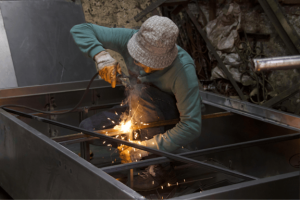Last Updated on May 22, 2025 by teamobn
Locks do more than just keep doors shut. They protect your home, your business, your family, and your peace of mind. But choosing the right type of lock? That’s where it gets tricky.
Digital locks have exploded in popularity over the last few years. With touchscreens, remote access, and features like fingerprint recognition, they sound like the future. But are they actually better than the humble, time-tested traditional lock?
Whether you’re upgrading home security or fitting out a new office, choosing between a smart deadbolt and a standard key lock isn’t just about technology. It’s about how you live—and what level of security fits your daily needs.
Let’s break it down.
Contents
- 1 What Are Digital Locks, Really?
- 2 How Do Traditional Locks Work?
- 3 Security Face-Off — Which Lock Type Offers Better Protection?
- 4 Everyday Convenience
- 5 Power, Tech, and Maintenance — What Could Go Wrong?
- 6 Cost Comparison
- 7 Aesthetic Appeal & Modern Expectations
- 8 Which Lock Fits Your Lifestyle?
- 9 The Lock You Choose Says a Lot
What Are Digital Locks, Really?
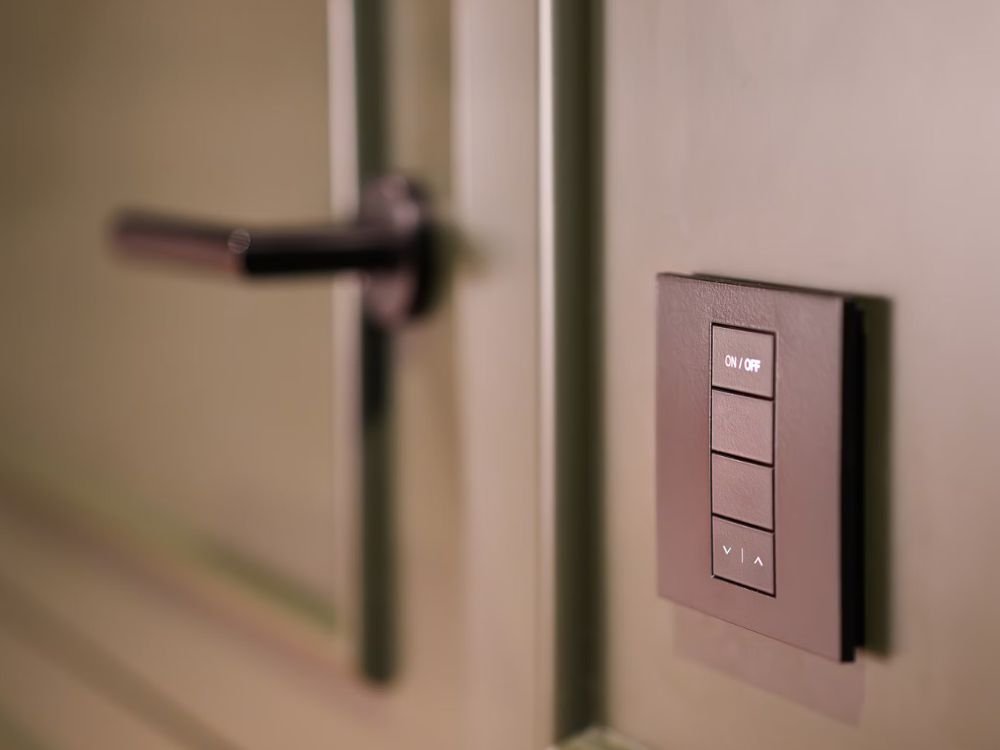
Digital locks, also known as smart locks or electronic locks, ditch the key entirely — or at least offer the option to. They use codes, fingerprint scanners, mobile apps, or even voice assistants to grant access.
They come in many forms. Some retrofit onto your current deadbolt. Others replace the entire locking system. Some are Wi-Fi-enabled. Others stick to Bluetooth.
Now, let’s break down what makes them appealing — and what could give you second thoughts.
Pros
- Keyless access: No need to carry keys. Just tap your phone, punch a code, or use your fingerprint.
- Remote control: You can lock or unlock your door from anywhere using an app. Forgot to lock the door? Fix it from the office.
- Activity logs: See who entered and when. Perfect for shared homes or rentals.
- Custom access: Give friends, cleaners, or dog walkers their own temporary codes.
- Integration: Many digital locks pair with smart home systems for voice commands or automation.
Cons
- Battery dependency: Most digital locks need power. If batteries die, you may get locked out.
- Hacking risk: Like anything connected, smart locks can be vulnerable to cyberattacks if not secured properly.
- Connectivity issues: Wi-Fi glitches? App updates? They can interfere with access.
- Higher price: Digital locks tend to cost more upfront and may require professional installation.
- Learning curve: Not everyone is comfortable with tech, especially older family members or guests.
How Do Traditional Locks Work?
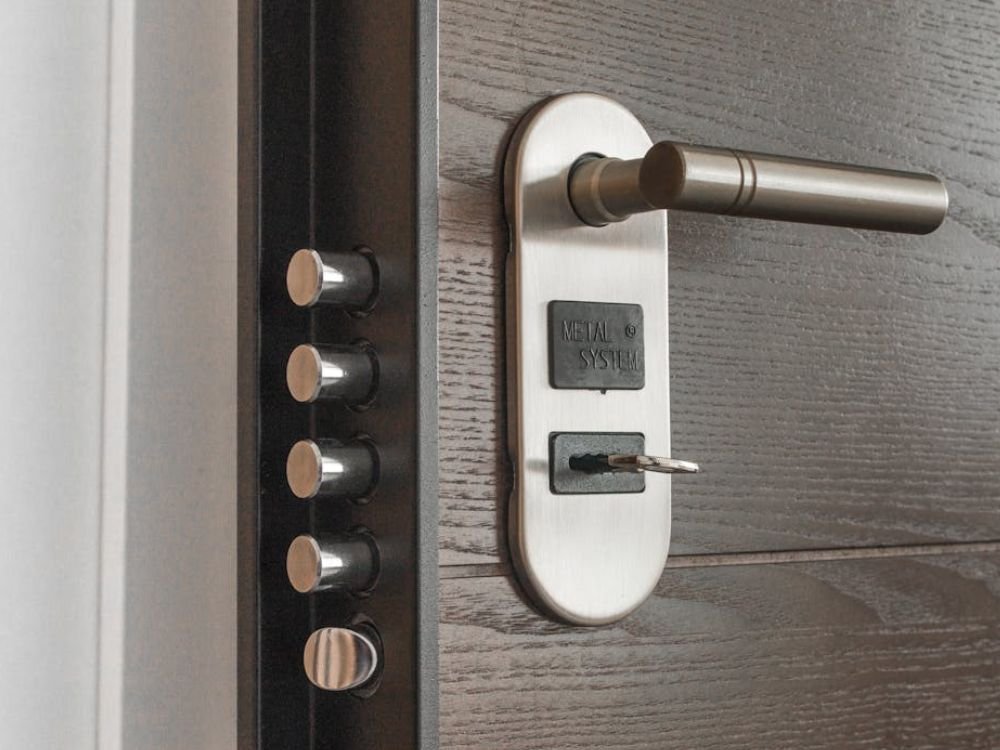
Traditional locks rely on physical keys. The most common type? The pin tumbler lock. You insert a key that lifts the internal pins into the right position, and voilà — it turns.
They’ve been around for centuries. And they’re still found on many millions of doors.
Pros
- Familiar: Everyone knows how to use a key. No instructions needed.
- No batteries: No power? No problem. They’ll still lock and unlock.
- Cost-effective: Basic locks are inexpensive and easy to install.
- Mechanical reliability: With fewer parts, there’s less that can go wrong.
Cons
- Lost keys = lost access. And if your spare is under the doormat… bad idea.
- Lock picking: Older models are vulnerable to bump keys and picking tools.
- Limited flexibility: Want to give temporary access? You’ll need to physically hand over a key or replace the whole lock.
Security Face-Off — Which Lock Type Offers Better Protection?
Both lock types can be secure or risky. It depends on the model and how it’s used.
Traditional locks are vulnerable to brute force, bump keys, and picking. High-security models offer more resistance but come at a cost.
Digital locks aren’t immune either. Cybercriminals can exploit software flaws. That said, models with encryption, two-factor authentication, and tamper alarms add a serious layer of protection.
Bottom line? The best lock is the one that’s installed correctly, maintained properly, and fits your lifestyle.
Everyday Convenience
This is where digital locks shine.
Imagine arriving home with arms full of groceries. No key? No problem. Just tap your phone or scan your fingerprint. Need to let someone in while you’re at work? Send them a code. Done in seconds.
Traditional locks? Reliable, yes. But they don’t adapt well to modern life. You’ll need physical keys for every user, and spare keys can be a security risk.
For busy families, landlords, or tech-savvy homeowners, the hands-free nature of digital locks is a clear win.
Power, Tech, and Maintenance — What Could Go Wrong?
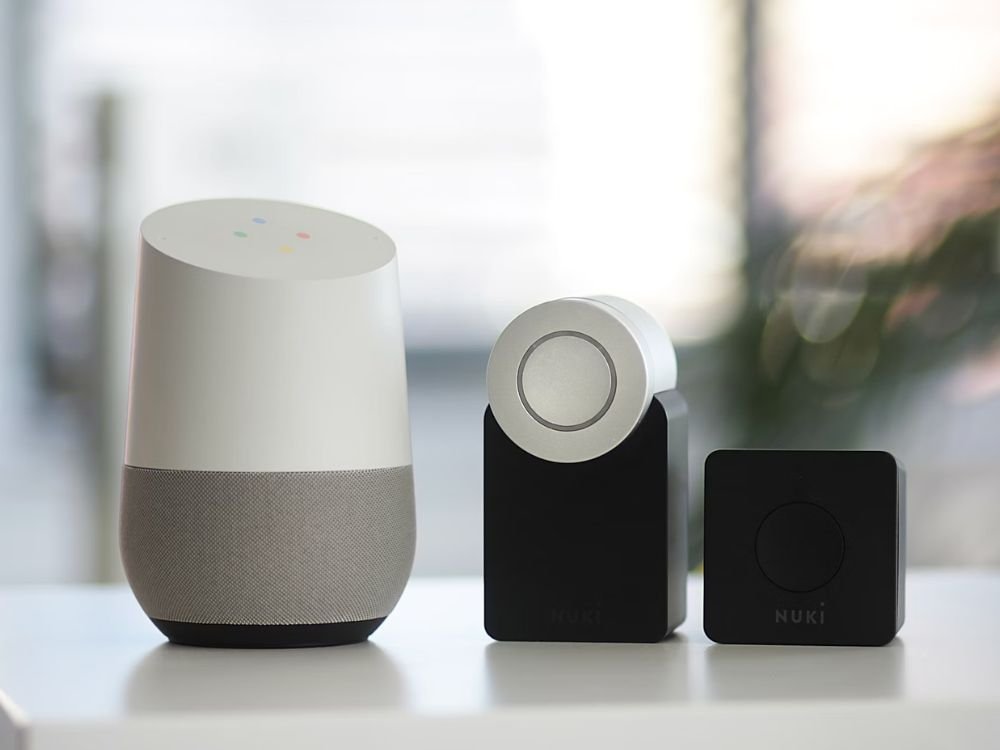
Let’s be honest: technology fails sometimes.
Digital locks run on batteries or connect to a power source. If batteries die and there’s no key override? You’re locked out. Wi-Fi interference, software glitches, or app crashes can also leave you stranded or calling tech support. And updates? Yes, your lock might need them. Like a phone.
Traditional locks might jam. But they’re not dependent on power or code. A bit of lubricant and regular checks go a long way.
So, while digital locks offer smart features, they demand smart upkeep.
Cost Comparison
The initial costs of smart locks are higher. A quality digital model can range from $150 to $300 or more. Installation may cost extra, especially if your door needs adjustments.
Traditional locks are much cheaper up front—often under $50 for standard models. Even higher-security ones rarely reach smart-lock pricing.
But here’s where it gets interesting.
Digital locks may save time and money long-term:
- No need to rekey
- No lockouts (if used with a phone or code)
- Less hardware swapping for short-term rentals
Still, if the budget is tight, traditional wins this round.
Aesthetic Appeal & Modern Expectations
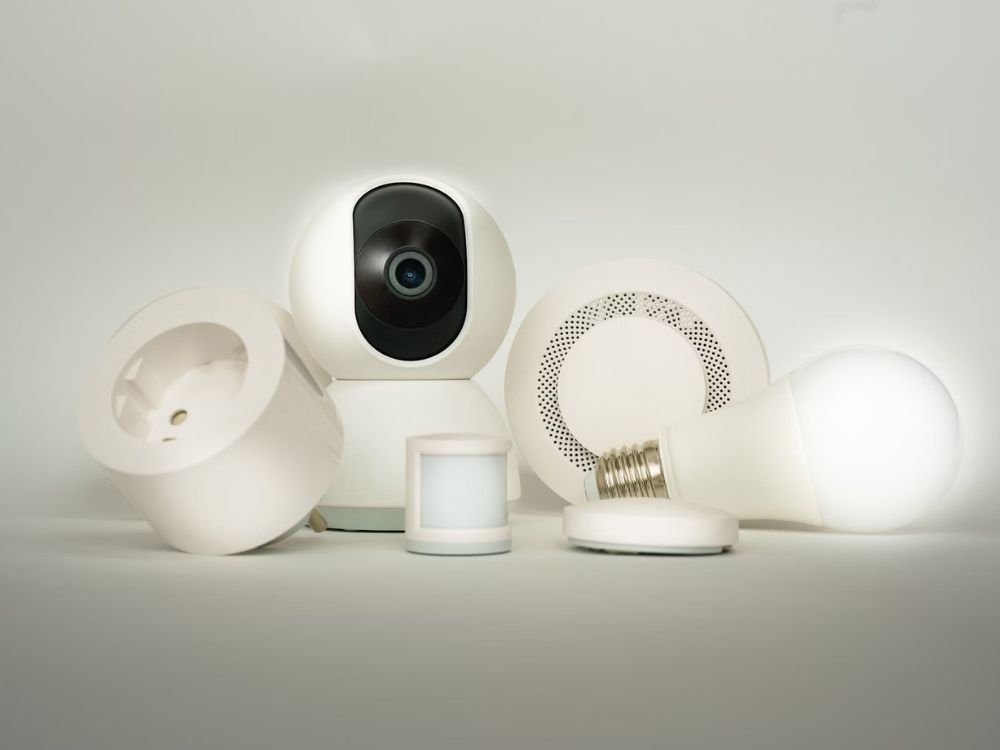
Smart locks look… well, smart. Sleek metal finishes. LED lights. Touchscreens. They fit right into modern homes or upgraded offices. Many buyers expect smart security in newer builds and rentals. In some markets, it’s a selling point.
Traditional locks come in more styles and colors. They suit heritage homes, rustic designs, or homeowners who prefer the familiar.
So, the question is – do you want a high-tech feel or a timeless one?
Which Lock Fits Your Lifestyle?
Not everyone needs a smart lock. And not everyone should stick with a key, either.
Choose a digital lock if you:
- Rent out your property
- Have frequent guests or staff
- Love smart home tech
- Hate carrying keys
Choose a traditional lock if you:
- Live in a low-tech home
- Prefer simplicity
- Have elderly family members
- Want a low-cost, low-maintenance option
And remember: some locks combine both. A smart deadbolt with key override gives you flexibility without fully giving up the old way.
The Lock You Choose Says a Lot
Whether you go high-tech or old-school, your lock reflects how you live and how you protect what matters.
Smart locks offer convenience and control. Traditional locks bring simplicity and peace of mind. The best option? It’s the one that fits your habits, your home, and your comfort level.
So take a look at your doors. Then take a look at your lifestyle. And make the choice that keeps you feeling safe, secure, and stress-free.

